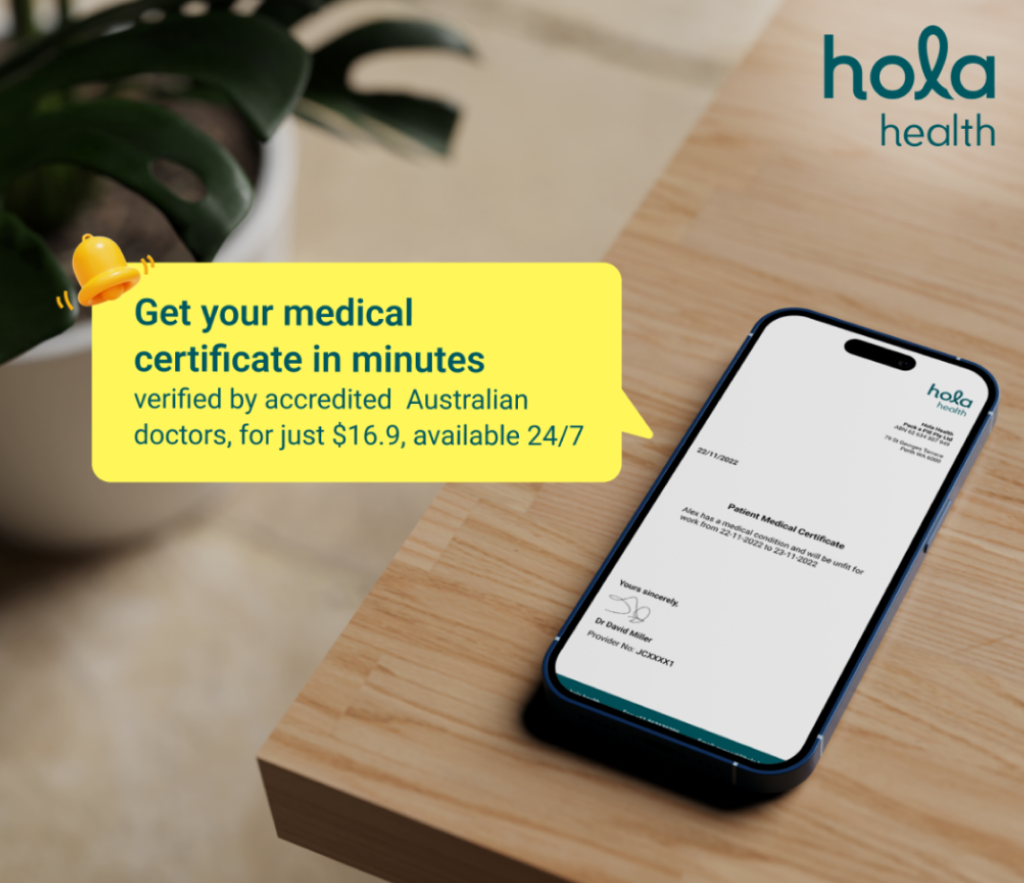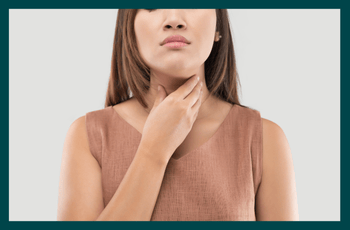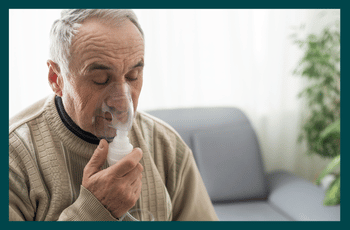- Home
- /
- Health Conditions
- /
- Chronic Wounds
Chronic Wounds Treatment
Speak with an AHPRA-licensed health practitioner regarding chronic wounds and get instant medical advice within 15 minutes, 24/7.
About chronic wounds

Chronic wounds or open wounds that lasts beyond 30 days are recognised as one of the major health concerns in Australia. Recent data estimates around 450,000 Australians are currently living with chronic wounds. This is more prominent in older adults, people suffering from diabetes and patients with mobility issues. Common types include pressure injuries such as bedsores, diabetic foot ulcers, and venous leg ulcers. Without proper care, chronic wounds can lead to serious complications like infections, tissue death, and in severe cases, amputation. While natural remedies like honey dressings and aloe vera may support healing, chronic wounds typically need professional care. Early intervention is key to reducing complications and improving quality of life.
Medically reviewed by Dr. Ammar AL-ANI, MBChB, CCBST, AMC
When to consult a doctor for chronic wounds
Wound care is important especially when the wound doesn’t heal for a long period of time.
Consult a doctor if:
- Doesn’t heal: If your wound doesn’t show noticeable improvement in 2 weeks or doesn’t completely heal within 6 weeks.
- Painful and swollen: If your wound is painful, swollen, red, warm to touch, or starts discharging pus or an unpleasant smell
- Fever: If you are experiencing physical discomfort, a fever or any other symptoms.
- Other conditions: People with diabetes, poor circulation, or immune conditions are at a higher risk for complications.
- When you are unsure: If you’re unsure about proper care, it’s always safer to check in with a healthcare professional.
What are the types of chronic wounds?
Chronic wounds are wounds that fail to heal within a certain period of time which is usually six weeks and often require medical care to avoid complications. The main types of chronic wounds include:
- Pressure ulcers or bedsores: Caused by prolonged pressure on the skin, common in people with limited mobility or those confined to a bed.
- Diabetic foot ulcers: Open sores that develop on the feet of people with diabetes, often due to nerve damage and poor blood circulation.
- Venous leg ulcers: Typically found around the ankles, these result from poor blood flow in the leg veins, causing swelling and skin breakdown.
- Arterial ulcers: Caused by restricted blood flow through arteries, usually painful and located on the lower legs or feet.
- Non-healing surgical wounds: Wounds from surgery that don’t close or heal properly.
What are the symptoms of chronic wounds?
Chronic wound are often open wounds that do not heal for 6 weeks or more and may even worsen further without proper care. Here are some symptoms of chronic wounds:
- A wound that remains open for more than 2–6 weeks
- Persistent or increasing pain
- Redness, swelling, or warmth in the surrounding skin
- Discharge or pus
- Unpleasant smell
- Delayed scab formation or failure to close
- Hardened, discoloured, or dead tissue around the wound edges
- Bleeding or oozing that doesn’t settle
- Fever, or chills
- Skin irritation or itchiness around the wound site
What are the causes for chronic wounds?
Chronic wounds develop usually when body’s natural healing process is slowed down, often due to underlying health issues or certain factors such as age. Common causes include:
- Poor blood circulation: Conditions like venous insufficiency or arterial disease reduce oxygen and nutrient supply to the wound.
- Diabetes: High blood sugar can damage blood vessels and nerves, increasing infection risk.
- Infection: Bacteria in a wound can prevent normal tissue repair and lead to complications.
- Pressure or repeated trauma: Continuous pressure or injury to a wound site can stop it from healing.
- Immune system issues: Autoimmune disorders, chronic illness, or certain medications can impair the body’s ability to heal.
- Poor nutrition: Lack of essential nutrients like protein, zinc, and vitamin C affects wound healing.
- Smoking: Reduces blood flow and oxygen delivery to tissues.
Can chronic wounds become serious?
Yes, chronic wounds can become serious when they remain untreated for a longer period. They are highly vulnerable to infections and can spread to surrounding tissues or even enter the blood stream causing life threatening conditions such as septicaemia or sepsis. For people suffering from diabetes, this can lead to a condition called gangrene and might require amputation in severe cases. Chronic wounds can also impact quality of life and lead to emotional distress due to persistent pain and reduced mobility. Some wounds may develop chronic inflammation or hardened scar tissue, making future healing even more difficult.
What are the complications of chronic wounds?
Chronic wounds can lead to several serious complications if left untreated or poorly managed. Common complications include:
- Infection: Bacteria can enter the wound, causing local infections like cellulitis or abscesses. In severe cases, this can progress to septicaemia, a life-threatening bloodstream infection.
- Tissue death: Prolonged poor blood supply or infection can cause surrounding skin and tissue to die.
- Gangrene: Particularly in people with diabetes or arterial disease, untreated wounds can result in extensive tissue loss, sometimes requiring amputation.
- Delayed healing and chronic inflammation: Persistent wounds can remain inflamed, painful, and difficult to manage.
- Reduced mobility and independence: Chronic wounds can make it painful or difficult to move, affecting daily activities.
- Psychological distress: Ongoing wounds often lead to anxiety, depression, and frustration.
Can chronic wounds resolve on their own?
Chronic wounds would rarely resolve on their own, especially without proper care. Chronic wounds would be due to underlying causes such as diabetes, poor circulation, extensive pressure on skin or infection. Without treating the underlying causes, the wounds would remain vulnerable to infection and lead to further complications such as sepsis.
What are some natural remedies for chronic wounds?
Here are some natural remedies that may help support the healing of chronic wounds, though they should always be used alongside professional medical care and post seeking advice from a doctor:
- Honey dressings: Medical-grade honey (like Manuka honey) has antibacterial and anti-inflammatory properties that can promote healing and reduce infection risk.
- Aloe vera gel: Known for its soothing and skin-repairing qualities, aloe vera can help reduce inflammation and support tissue repair.
- Turmeric paste: Contains curcumin, which has anti-inflammatory and antimicrobial effects. Can be applied topically (if advised by a healthcare professional).
- Coconut oil: Acts as a natural barrier and moisturiser, with mild antibacterial properties.
- Vitamin C-rich foods: Essential for collagen production and wound healing. Include citrus fruits, berries, and leafy greens in your diet.
- Zinc supplements or foods: Supports tissue repair and immune function.
- Chamomile compresses: Can help soothe irritated skin and reduce inflammation.
How can a telehealth doctor help with chronic wounds?
Chronic wounds can be diagnosed via telehealth using Hola Health. Speak to an AHPRA-accredited online doctor from the comfort of your home, 24/7 from anywhere in Australia and seek quick medical advice for chronic wounds. To speak to a licensed doctor online:
- Visit Hola Health website or app and click on telehealth consultations.
- Choose a consultation type, fill in your details along with Medicare information.
- Make the payment using the secure payment gateway.
- Connect with an online doctor within 15 minutes and discuss your concerns.
- If needed, post the consultation, you will receive an online script via SMS or online medical certificates and online referrals via email.
Can Hola doctors provide an online prescription for chronic wounds?
Yes, if doctor approves, you can receive an online script for chronic wounds. To get a script online, you can select online prescriptions from Hola Health website or app. Fill in your details along with your Medicare information and make the payment. Post a brief instant consult, if the doctor approves, receive a valid instant script online via SMS.
How can I get a medical certificate online from Hola Health?
Yes, you can easily get a medical certificate online through Hola Health, a 24/7 telehealth service in Australia.
Here’s how it works:
- Select your certificate type, whether it’s for personal sick leave for uni, work, carer’s leave, or multiple days.
- Fill out a quick, secure online form with your details and payment.
- An AHPRA-registered health practitioner will review your request within 15 minutes.
- If approved, your medical certificate is emailed to you instantly.
Can I get an online referral for chronic wounds through Hola Health?
Yes, you can get an online referral for specialist, pathology tests, radiology scans, blood tests and more for chronic wounds.
Are Hola Health GPs equally qualified as your regular GP?
Yes, Hola doctors are AHPRA-accredited medical practitioners who are licensed to practice in Australia. They adhere to the regulations just like the normal GPs.
How can we help?
Here’s how Hola Health makes healthcare simple and convenient for you:
- Online doctor consultations: Instantly access qualified Australian doctors anytime through secure telehealth consults, all from your home.
- Quick medical certificates: Get legitimate medical certificates issued quickly by licensed doctors, so you don’t face unnecessary wait times.
- Legitimate online scripts: Receive instant scripts for common treatments instantly on your phone or email.
- Online doctor referrals: Obtain referrals to specialists, lab tests, and imaging centers, all processed online.
- Remote mental health support: Access mental health care plans remotely to unlock subsidised sessions with psychologists and counsellors.
- Online chemist delivery: Enjoy the convenience of having your medications delivered straight to your door, no pharmacy visits needed.
Talk to a doctor today
Instantly connect to a registered practitioner within 15 minutes from anywhere in Australia, 24/7 for:
- General consults
- New & repeat scripts
- Referrals
- Medical certificates
- Mental health plans

Read more about chronic wounds
Access telehealth services
Doctors Brisbane | Doctors Melbourne | Doctors Perth | Doctors Sydney | Doctors near me | Doctors Canberra | Doctors Adelaide | Doctors Darwin | Doctors Hobart
After hours Doctor Brisbane | After hours Doctor Melbourne | After hours Doctor Perth | After hours Doctor Sydney | After hours Doctor Hobart | After hours Doctor Gold Coast | After hours Doctor Canberra | After hours Doctor Adelaide | After hours Doctor Darwin | After hours GP | After hours doctor
Medical certificate | Medical certificate online for work | Medical certificate for school | Medical certificate for Uni | Medical certificate for stress | Carer’s leave certificate | Medical certificate NSW | Medical certificate QLD | Medical certificate VIC | Medical certificate WA | Doctors certificate online | Multi-day Certificate | Sick certificate online | GP medical certificate | Doctors note | Telehealth medical certificate | 2-day medical certificate | Medical certificate for sick leave
Instant scripts | eScript | Online prescriptions | Online prescriptions Sydney | Online prescriptions Melbourne | Online prescriptions Perth | Online prescriptions Brisbane | Online Rx prescription
Online referrals | Blood test referral | X-Ray referral | Pathology referral | Radiology referral | Specialist referral | Gynaecologist referral | Audiology referral | Ophthalmologist referral | Paediatrician referral | Ent specialist referral | Endocrinologist referral | Dermatologist referral | Urologist referral | Gastroenterologist referral
Telehealth appointment | Online Doctor | Bulk Billing Doctors | Doctors on-demand | Instant consult | Covid antiviral | Dial a Doctor | Online GP | Doctor appointment | Bulk-billing doctors | Telehealth pricing | GP online chat | Australian doctor | Web doctor | Home doctor | 24-hour doctor















